Brain activities can frequently assist dementia patients in keeping their thoughts engaged and working. Several sorts of workouts might be helpful, and selecting the ones most effective for each individual is critical. Some activities may be more beneficial, so you should experiment to find what works best for you. This blog article will explore some of the patients’ most excellent brain workouts.
Many practical and helpful jobs and exercises may perfectly boost your brain, prevent sickness, or help you make life simpler with this disease. Continue reading to find out more!
How Can Brain Games Help With Dementia?
Whether you’re looking to prevent Alzheimer’s or improve brain function, there are many exercises you can do to keep your mind sharp. We’ve gathered the top 10 brain-pumping exercises for you, so that you can find activities to your liking.
Dementia is a broad term used to describe a decline in cognitive ability. This can manifest in:
- Memory loss.
- Difficulty focusing.
- Impaired judgment.
While there is no one-size-fits-all solution to managing dementia, brain games can be a helpful tool.
Brain games can help improve cognitive function by providing stimulating activities that exercise the brain. These exercises can help to delay the onset of dementia or improve symptoms in those who have already been diagnosed.
What Brain Exercises Should Do Dementia Patients
There are many different types of brain games available, it’s important to find ones that you enjoy and will stick with:
- Some popular options include crossword puzzles, Sudoku, and memory games.
- There are also more active games designed for seniors, such as dancing or gardening.
No matter what type of brain game you choose, the important thing is to keep your mind active and engaged. Regular practice can help improve cognitive function and delay the condition’s onset.
Read about foods that may help prevent or slow down dementia in our Lone Star blog.
Sudoku – Game With Numbers
Sudoku is a puzzle game that uses numbers instead of words. The objective is to fill a 9×9 grid with digits so that each column, row, and 3×3 section contain all of the digits from 1 to 9. Sudoku is a great workout for your brain and can help improve your memory and concentration.
In the beginning, this game may seem a little complicated, but this means that your brain is working perfectly, and you will actively pump your brain.
Crossword Puzzles
Crossword puzzles are a traditional and free brain activity that may be enjoyed by seniors with dementia. To complete these riddles, you must apply your language knowledge. It has been scientifically proven that crossword lovers have a better memory and cope well with problems in critical situations.
Purchase crossword puzzles for your grandparents. You may do puzzles with them and so achieve two things at the same time: prevent brain damage and train grandparents’ cognitive abilities.
Sing Or Play Music With Music Instruments
Playing music is a great way to exercise your brain. Studies have shown that musical training can improve:
- Memory.
- Cognitive function.
- Executive function.
Playing an instrument can also help to reduce stress and anxiety. If you’re not a musician, you can still enjoy the benefits of music by singing along to your favorite songs.
Do Training Outside
One of the best options is to use active games for seniors with dementia. Being in nature can help to improve your mood and cognitive function. A study found that people training outside had better attention spans and memory recall than those training indoors. Fresh air and sunshine can also help to reduce stress and improve your overall well-being. And what could be better than fresh air?
Playing Checkers or Chess
Checkers and chess are two classic board games that can help to improve your:
- Memory.
- Planning.
- Problem-solving skills.
These games require you to think ahead and consider your next move. Regular practice can sharpen your mind and keep your cognitive function sharp.
Online Games
There are a variety of online games available to help dementia patients improve their memory and cognitive function. Popular options include brain-training games, memory games, and puzzle games. These games provide a fun and interesting method to exercise your brain.
Learn Foreign Language
Learning a new language can aid in enhancing memory, cognitive function, and attention span. It is never too late to begin studying a foreign language. There are several material sources accessible, including:
- Online classes.
- Apps.
- Books.
Talking to People More
Maintaining a social life is essential for your mental health. Connecting with people can enable you to decrease stress, enhance your mood, and protect yourself against cognitive degeneration. There are several strategies to keep socially engaged, including:
- Joining a club.
- Taking a class.
- Attending social events.
Whatever hobbies you select, be sure they are ones you will love and stick with. You may assist increase your brain function by practicing on a regular basis.
Join a Book Club
Apart from brain games for Alzheimer’s patients, you should consider joining a book club. It is a great way to stay socially active and exercise your brain. Book clubs provide an opportunity for you to discuss what you’re reading with others. This can help to improve your comprehension and memory recall. In addition, reading itself is a great way to keep your mind active and engaged.
Dancing
Dancing is a great way to get your body moving and your brain working. Studies have shown that dancing can help to improve memory, cognitive, and executive function. Dancing can also help to reduce stress and anxiety. If you’re not a dancer, you can still enjoy the benefits of dancing by taking classes or attending workshops.
You can read how to support a person with dementia in our ither article.
Bottom Line
If you are interested in treating or preventing dementia, it is vital to use only professional sources of information. You can get professional help only from doctors from experienced clinics. You can sign up for a consultation very simply – just use the special button for contact and wait for the consultant’s response.
FAQs
- Can brain exercises help prevent dementia?
Some studies have found that cognitive training can improve some aspects of memory and thinking, particularly for middle-aged or older people. So far, no studies have shown that brain training prevents dementia.
- Should people with dementia be forced to play these games?
There is no strict rule to pump your brain, but if you want to treat that disease and train your brain, you should play brain games.
- Who is vulnerable to dementia?
The most significant risk factor for dementia is aging. This means as a person gets older, their risk of developing dementia increases a lot. For people aged between 65 and 69, around 2 in every 100 people have dementia. A person’s risk increases as they age, roughly doubling every five years.
- How can I understand I have dementia?
Although the early signs vary, common early symptoms of dementia include:
- Memory issues, particularly recalling recent occurrences.
- Confusion is spreading.
- Concentration has been reduced.
- Changes in personality or conduct
- Apathy, withdrawal, and depression.
- Loss of capacity to do daily chores.


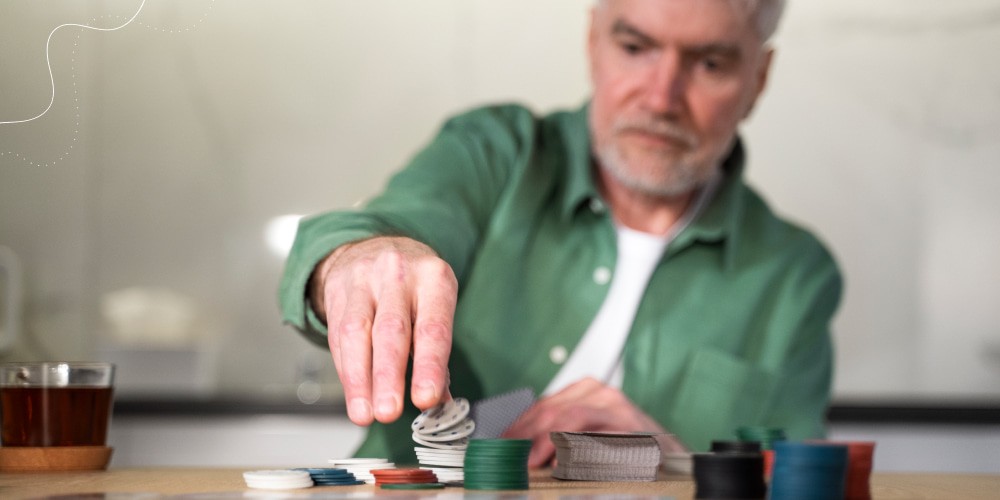
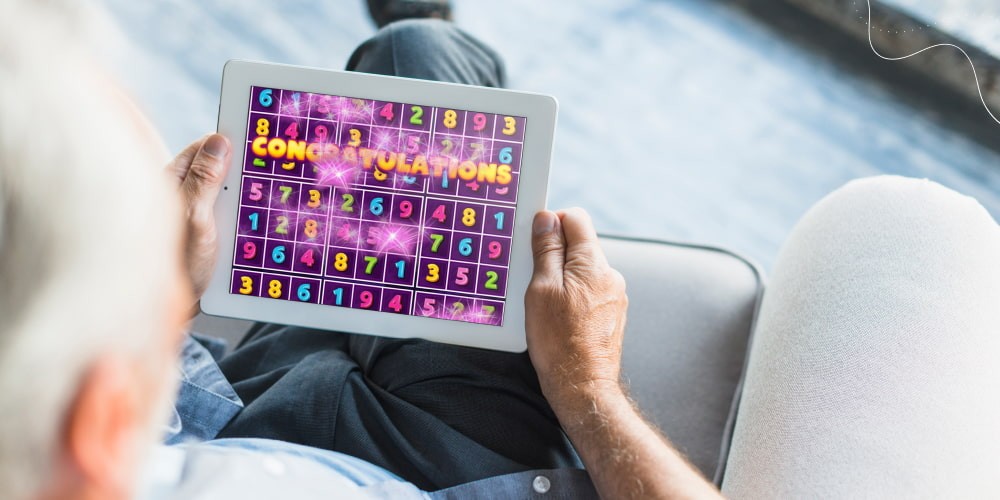
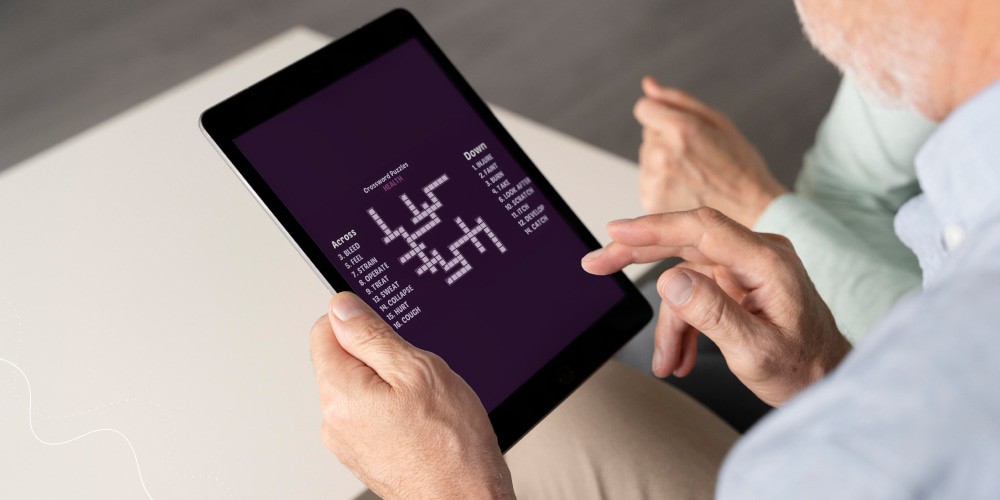


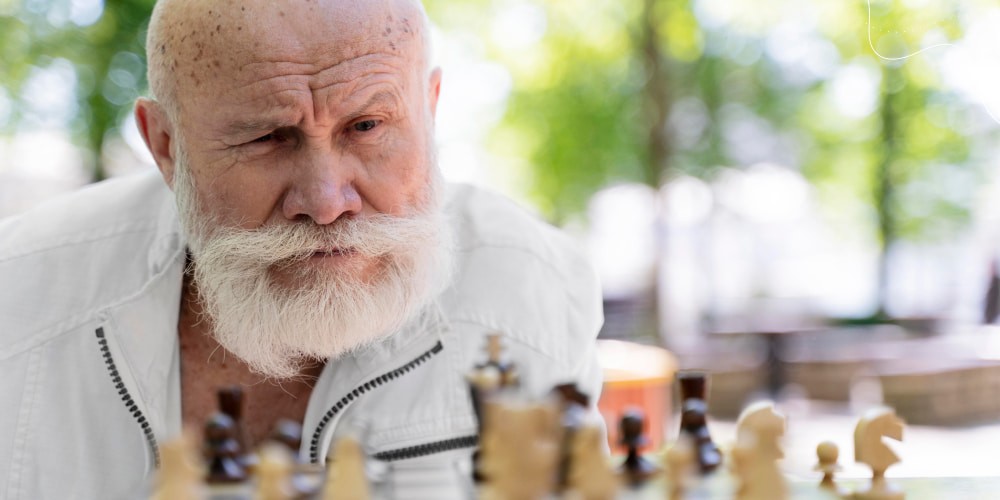
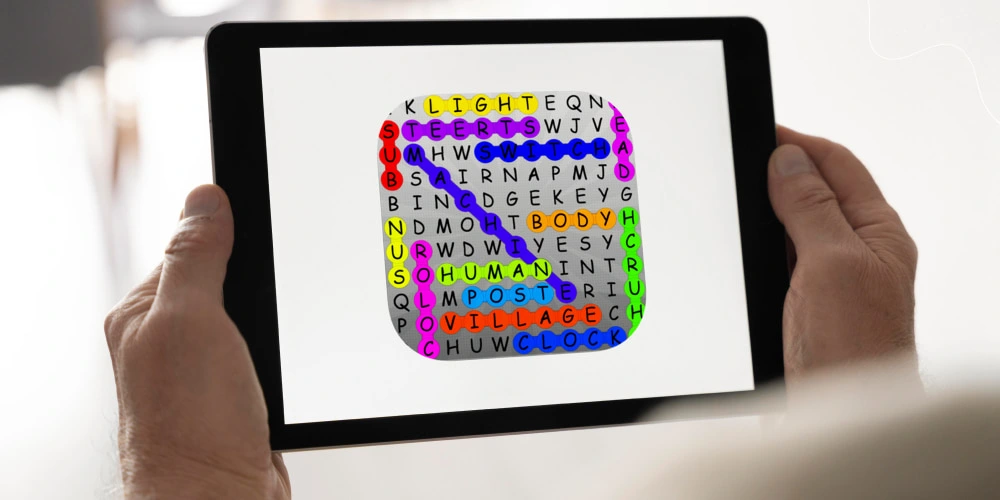
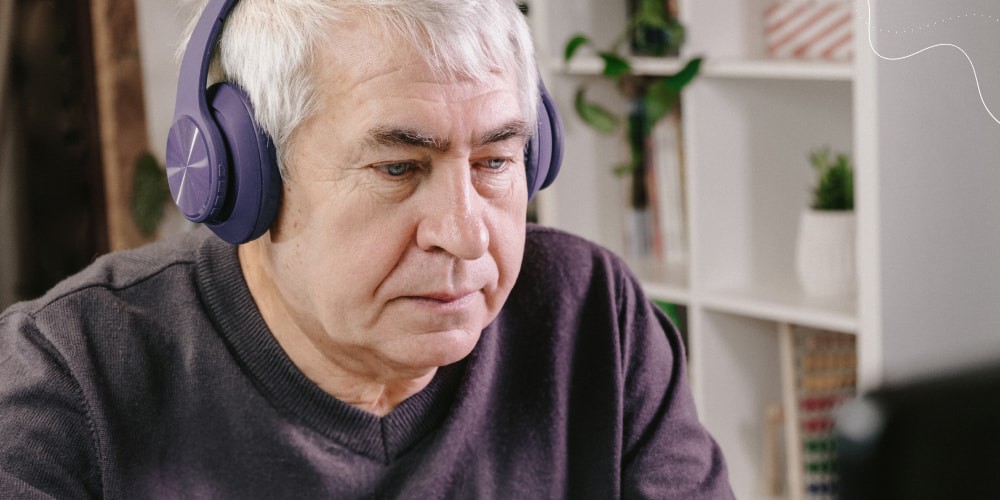









Please, leave your review
3 Comments
Linda Berdahl
13/10/2023
I’m 77 years old and was diagnosed about a year ago. I still drive, grocery shop, play games on my iPad, plan and watch cable tv which is very new, keep grocery lists, do laundry, read the paper. My husband helps keep my appointment calendar. My short term memory doesn’t work but I have notepads and pencils around the house. I’m trying everything that’s recommended to keep as much of my brain as I can. I also do jigsaw puzzles on my iPad.
I learned a lot fro you ur website.
Agard, John
23/01/2024
Gracious! Back in the day we did not haev this technology eh! I got this wireful connection a coulpe days ago and it is working wonders, gosh!
I am 92 and have had alzheirer’s for the better part of two years, but it has only made me stronger! I advise anyone with similar neurodeficiencies to seek aid in blog pages like thise!
I am the best in my block at sudoku! I sometimes forget the numbres, but it’s an illusion!
Best of luck to website! freg
! k
‘
Wubet Addis
12/03/2024
I have read the note given. I appreciate your way of presentation. I have been diagnosed to be in the early stage of dementia. I some times face memory loss. Recalling names of people whom they had been introduced in a certain past occasion is really difficult for me. But thanks for your generous advice and suggestion I will try to exercise some of the games which may be available for me.
Does massage that helps blood flow towards brain improve dementia status?
My appreciation!!!
Write a comment: